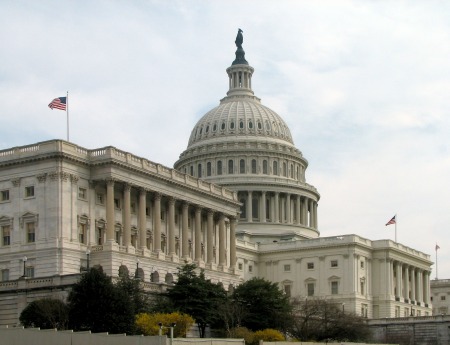New Bill Would Open Second Tribal Window For Free 5G Spectrum
Bipartisan effort would give Tribes another six months

The smarter way to stay on top of the multichannel video marketplace. Sign up below.
You are now subscribed
Your newsletter sign-up was successful
Senate Democrats, joined by at least two Republican House members, are trying to force the FCC to open a new window for Tribal groups to file for 2.5 GHz 5G spectrum.
The FCC granted a one-month extension of the initial six-month filing window for rural Tribes from Aug. 3 to Sept. 2, but then closed it.
Related: FCC to Free Up 2.5GHz for 5G
Some Tribal entities and others had sought a six-month extension, citing the challenge of filing while dealing with a pandemic that is hitting Tribal areas particularly hard. But FCC chairman Ajit Pai explained the decision to only grant a 30-day decision this way: "A much longer extension would substantially delay our award of licenses to Tribal entities and thus delay their ability to use this spectrum to connect those consumers living on Tribal lands."
The FCC has already announced the initial applicants.
But now Sens Jeff Merkley (D-Ore.) and Ron Wyden (D-Ore.), along with almost a dozen other senators, have introduced a bill that would open a second, six-month, window to "allow Tribal Nations and Native Hawaiian organizations the time they need to apply for spectrum licenses for unassigned spectrum over their own lands—a critical step to expanding broadband access in their communities."
The Extending Broadband Tribal Priority Act of 2020 would require the window to open within 30 days of passage.
Among the bill's supporters, according to Wyden's office, include the National Consumer Law Center; New America's Open Technology Institute Public Knowledge; Schools, Health & Libraries Broadband (SHLB) Coalition; and the National Hispanic Media Coalition.
In addition to 11 other Democratic senators supporting the bill--Amy Klobuchar (D-Minn.), Elizabeth Warren (D-Mass.) and Ed Markey (D-Mass.) among them--are Republican Reps. Don Young (Alaska) and Tom Cole (Okla.).
A politically divided FCC voted last July to convert the 2.5 GHz band from one reserved for educational (EBS) licenses to flexible licenses that can be used for 5G, and to auction current unassigned spectrum (white spaces) in the band.
The Democrats on the FCC saw the sunsetting of the EBS-controlled band as an abdication of an important educational mission, and strongly dissented on that part of the item. The Republicans said they were putting dramatically underused spectrum to its highest, best use--5G--and reforming "arcane" rules.
One thing the Democrats did support was giving the tribal communities a priority window to obtain unassigned spectrum to serve tribal lands--the only part they approved. House Democrats had been concerned that an initial 60-day window was not enough time and made that concern known.
The FCC ultimately went with a six-month window.
The smarter way to stay on top of the multichannel video marketplace. Sign up below.
Contributing editor John Eggerton has been an editor and/or writer on media regulation, legislation and policy for over four decades, including covering the FCC, FTC, Congress, the major media trade associations, and the federal courts. In addition to Multichannel News and Broadcasting + Cable, his work has appeared in Radio World, TV Technology, TV Fax, This Week in Consumer Electronics, Variety and the Encyclopedia Britannica.

